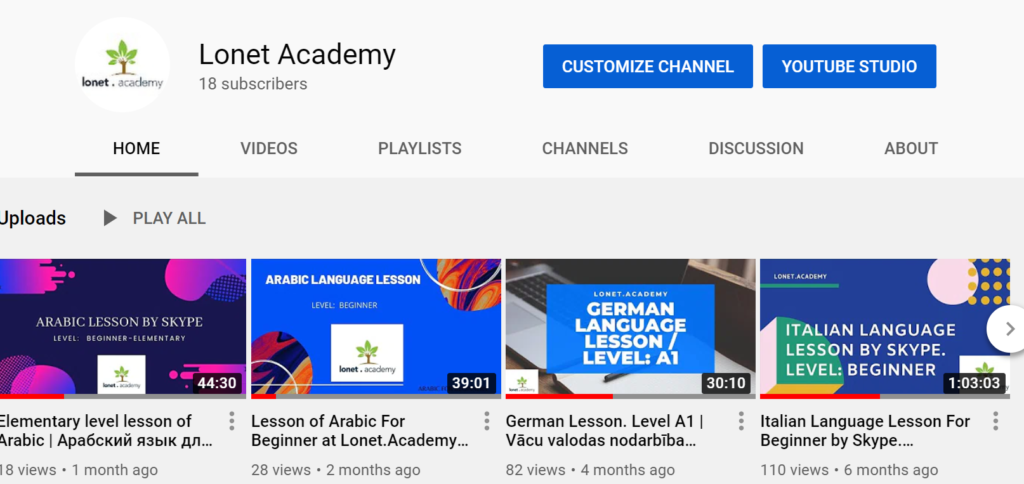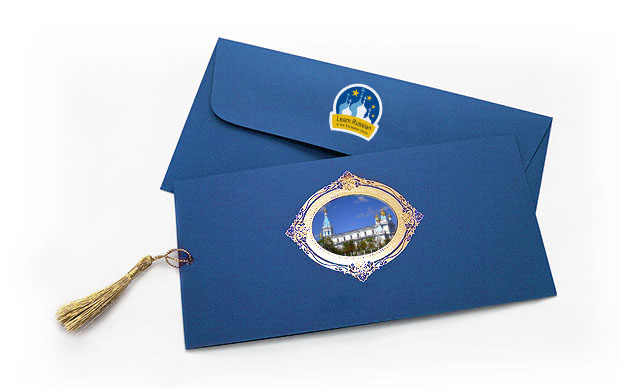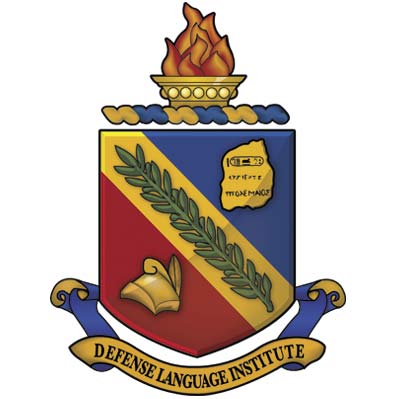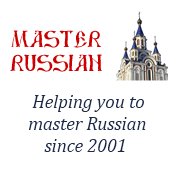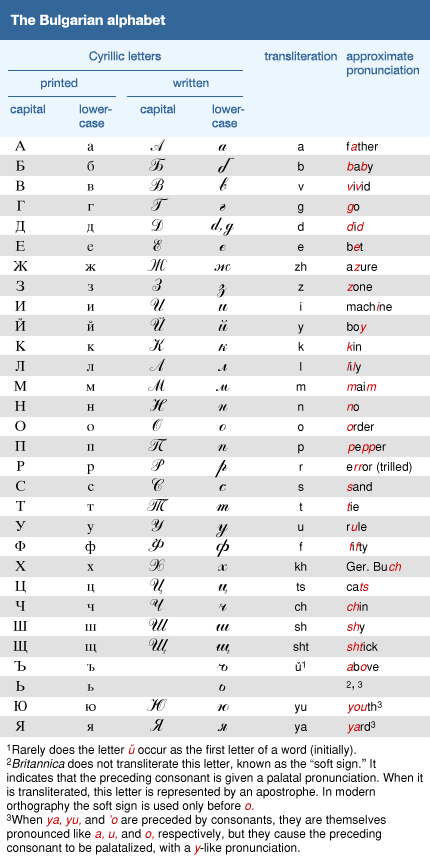How to learn russian language
How to learn russian language
10 Ways to Learn Russian
The Russian language is one of the most widely spoken Slavic languages and the 6th most spoken language in the world by the number of native speakers. Therefore, a lot of people would like to learn Russian for their work or career prospects, other people need to learn Russian for their study, but some people would like to learn about the Russian culture.
In this article we are going to give you 10 useful tips which might help you learn Russian and make this process enjoyable and exciting.
1 – Start with the Easiest Things
The first step to learn Russian is to learn its alphabet. The Cyrillic alphabet, unlike the Latin alphabet, is based on the Greek alphabet. That is why many letters look similar but they denote different sounds, and some of them are unique. For example, the Russian letter “Р” corresponds to the English letter “R”, but the Russian “Н” is the English “N”. If you pay enough attention to the alphabet and basics of phonetics from the very beginning, the further learning of other language aspects will become easier and you will progress much faster.
In order to learn to read in Russian you can use children’s fairytales. You can find the list of the most popular fairytales in Wikipedia. They are written in the simple and grammatically correct Russian language and they are easy to understand. This kind of reading will help you feel the basics of the language, and learn to make nice and correct sentences. It’s better to leave more complicated things until later.
2 – Practice is the Best Master
As the Russians say. Stick slips of paper with Russian words on furniture, electric appliances, dishes and everything that is around you in the places where you spend a lot of time: at home, in the office, in a car, etc. It will help you to always see these new words, and gradually you will remember the words without intentionally memorising them.
3 – Write down Everything
Do not always rely on your memory. Especially if you are in a foreign country and everything that surrounds you is often new; you should always keep your notebook or mobile at hand, so that you will be able to take notes quickly. At the end of every day look through your notes – you will definitely find some stuff that is worth remembering.
We recommend you to use notebooks with a special layout. It will let you make your notes in order and then later you will find it much easier to use them later.
4 – Always Stay In Contact
VKontakte is a Russian version of Facebook which is sometimes more popular on the territory of post-Soviet countries than its “elder brother”. Russian-speaking users gladly make new friends with foreigners, which can be very useful for your language practice. Thanks to communication in social networks you can quickly improve your colloquial language and learn about foreign network culture. Moreover, your new friends and acquaintances during this informal conversation can sometimes explain some phenomenon and concepts better than teachers in a formal situation.
5 – Films and Music
Many people find watching films and listening to music the most interesting way to learn a foreign language. The official channel of the cinema concern Mosfilm can be a great help for learning Russian. It presents old Russian films. The channel also has a special playlist with Russian films with subtitles.
Far From Moscow is an excellent platform where you can find a lot of Russian music of all types and genres from Russia, Ukraine, Belarus and other countries. There is lots of content that you can listen to and download legally.
These resources will help you improve your language skills as well as find new topics for conversations with friends.
6 – Read in Russian
Reading develops language skills quickly. Try to read in Russian as much as possible. For example, you can read news sites or Russian-speaking blogs. It will help you improve your language and you will be able to better understand the Russian mentality, culture and everyday life. All in all, it is just interesting to read what they write about the same events in different countries.
7 – Never Reject Invitations
Russians sometimes seem unfriendly or cold, but only until you get to their place. If you are invited to a party or for a cup of tea, you can be sure that they will treat you with the best food and share the most unusual stories. This kind of lively and informal communication is an excellent way to improve your communication skills, learn about the culture and make friends.
8 – Visit a Russian-Speaking Country
Full immersion into the language is the best way to start speaking Russian. The Russian language is widely used on the former USSR territory; therefore, you do not need to travel to Russia. You can find cities in other countries where Russian is one of the main languages for communication. You can find such a place in the European Union. For example, Daugavpils city in Latvia: 80% of its citizens speak Russian as their mother tongue, and 96% of its citizens speak Russian fluently. In Daugavpils people speak the modern standard Russian language without any accent as the main language for communication. This makes Daugavpils a very attractive place where you can learn Russian.
If there is a chance it is better to stay not at a hotel but with a Russian-speaking host family. Numerous language training programmes provide this opportunity. So, you will stay within the language environment and you will have to speak Russian all the time. You will definitely benefit from staying with a Russian-speaking host family.
9 – Find a Conversation Partner
It is not really difficult to find a conversation partner whose mother tongue is Russian. You can use social networks, but if you are visiting a Russian-speaking country, find somebody you can spend time with. It will help you make new friends as well as get you involved into the process of learning the language.
It is crucial to understand that if your main target is the language you should remember to write down and memorise everything new. Analyse your meetings, learn new words and phrases. Gradually, after every “class” you will feel more confident, which means you will be more prepared for much more complex things.
10 – Find a New Hobby
Like cooking? Ask your new friends to teach you how to cook some traditional Russian dishes. Like music? Learn some traditional Russian songs and some modern popular Russian songs. Immerse yourself into the Russian culture. It will make you an even more interesting conversation partner and will let you better understand the Russian mentality. You will be able to more quickly find a common language with Russian-speaking people and to get a much broader speaking experience.
Russian culture and the language, which is an integral part of it, are incredibly interesting and, therefore, they are attractive to a lot of people. We are sure that the tips we have given you will make the process of learning Russian easier and more enjoyable. If you are interested in the Russian language training courses which combine a unique cultural experience and practice, you should study the information at our website. Do not be afraid of challenges and learn Russian!
2 thoughts on “ 10 Ways to Learn Russian ”
Thank you for this. It is helpful. I do not retain things well, but this has helped me learn and remember much of Russian words. Next step, learn the phrases ;)
This is really helpful!
Please post something about Russian verbs, I always have a problem with that.
bolshoe spasibo!
Essential Guide to Learning Russian: From Newbie to Advanced
Table of Contents
Learning Russian: Common Beginner Questions
Like many great ideas, the thought of learning Russian usually takes people by surprise. Perhaps you are inspired by tragic, high-brow Russian literature or interested in Russia’s turbulent past; perhaps you are yearning to try Russian cuisine and drink a toast with your new best friends on a long-distance train; it could be that your homeland has historical ties to Russia, and even if it doesn’t, you are well within your right to dream of coming here to travel, study, or work.
No matter your reasons for taking up Russian, you may be struggling with some big questions at the beginning of your language learning journey.
Source: Ilia Schelkanov, Unsplash
Is It Difficult to Learn Russian?
Yes. No. Maybe? Ultimately, the answer to this question comes down to three points:
Your experience with second language acquisition can be a double-edged sword:
so don’t dwell on the things you never learned in the past, focus on the present and future instead.
How Long Does It Take to Learn Russian?
An old (like, Soviet Union-old) Russian joke comes to mind:
How long does it take to learn Chinese?
A renowned professor will say, “Oh, it is an impossible task; even if you dedicate your whole life to it, there will always be something new for you to puzzle over.”
A research assistant will say, “About ten years.”
A lecturer will say, “Five years.”
A college student will say, “When do we need to take this exam?”
Questionable comical value aside, this joke does contain a kernel of truth:
A tourist doesn’t need to be as fluent as a businessman, and an engineer will be forgiven for lacking the knowledge deemed crucial among Liberal Arts majors.
However, if you belong to the type of people who thrive within competitive and/or meticulously organized environments, you might want to take a look at the official TORFL (Test of Russian as a Foreign Language) standards. If we consider taking a full-time language class as the norm, then Level A1 takes 60 to 80 hours of training to complete, while A2 takes 160 to 200 hours, B1 – 400 to 480 hours, B2 – 560 to 680 hours, C1 – 960 to 1,200 hours and so on. Adjust these numbers according to your schedule and you’re good to go!
Source: Alexander Smagin, Unsplash
How to Successfully Learn Russian: Intention, Goals and Motivation
The key to success lies within clearly defined goals. Many learners fail because their goals are too abstract : no one can track their progress and celebrate small victories when their goalposts are constantly shifting.
This is exactly why gamified learning apps, LingoDeer included, are so popular – they provide external motivation in the form of pre-made lessons, learning stats, leader boards, small prizes and other exciting features. But no app and no games can replace your internal motivation and the goals you set for yourself, so take some time brainstorm:
This soul-searching will get you ready to learn and succeed. But first, let’s look at some common mistakes that hinder other learners’ progress.
DON’Ts in Learning Russian as a Beginner
DON’T Rely on Romanization
Mechanical reading in Russian is a lot more straightforward than in English or French, so mastering it won’t be a huge investment of time, but it will pay off in the long run.
The beginning and the middle of the LingoDeer Russian Alphabet lesson. Sing in for more! 🙂
DON’T Ignore Russian Terms of Address
Spanish speakers are in luck: Russian is yet another language where the plural you – Вы – can be used as a polite form of address. But even Spanish speakers sometimes struggle with a curious Russian habit of addressing your teachers, superiors, older neighbours and equals you don’t know very well by their given name and patronym, like this:
| Full name (surname + given name + patronym) | How to address them |
| Ивано́в Ива́н Ива́но вич | Здра́вствуйте, Ива́н Ива́нович! Hello, Ivan Ivanovich! |
| Петро́ва Мари́я Ива́но вна | Здра́вствуйте, Мари́я Ива́новна! Hello, Maria Ivanovna! |
Patronym (о́тчество) is one’s father’s given name with a gendered suffix attached (men get –вич, women get –вна), so knowing someone’s full name automatically means you know ⅔ of their dad’s name:
| Surname | Given name | Patronym | |
|---|---|---|---|
| Son | Ивано́в | Ива́н | Ива́нович |
| Father | Ивано́в | Ива́н |
| Surname | Given name | Patronym | |
|---|---|---|---|
| Daughter | Петро́ва | Мари́я | Ива́новна |
| Father | Петро́в | Ива́н |
Neat, isn’t it? Either way, don’t go around calling people by their given names or surnames unless they took pity on you and gave you specific permission to do so! To make a polite inquiry, say:
Как Вас по о́тчеству? OR Как Вас по ба́тюшке? What is your patronym?
Ah, if only matronyms were more common… Source: Julia Kadel, Unsplash
DON’T Try To Learn Everything At Once
As a new learner, you might be tempted to try and learn everything at once. This rarely leads to desired results, especially when it comes to a grammatically complex language like Russian. Don’t burn out too fast; pick a schedule you’ll be able to stick to day after day after day, take your time and don’t rush : as Russians say, ти́ше е́дешь, да́льше бу́дешь – “the slower you go, the further you get”.
DON’T Overthink It
We’ve all had this happen to us (and by we, I mean native speakers of Russian who dabble into teaching Russian as a Second Language, of course): a learner approaches with a theoretical question, the answer to which is way too complex for their understanding yet, and yet they persist in asking for clarification. You give one, to the best of your ability. The learner doesn’t get it. The language acquisition process is stalled, and everyone feels bad about it.
Getting Started as An Absolute Beginner in Learning Russian
Russian is a language that requires time and patience, but it doesn’t mean you can’t learn some simple stuff first. With that thought in mind, let’s take a look at the Russian azbuka and some common Russian phrases.
Azbuka, the very first step
The Russian alphabet (also known as алфави́т or а́збука) consists of 33 letters: 21 consonants, 10 vowels, and 2 signs that are not pronounced:
Russian азбука, as you might have seen it in movies
While overwhelming at first glance, the Russian alphabet is not that difficult to learn – especially for English speakers, since there are some similarities between the Latin and Cyrillic alphabets. Generally speaking, the Russian letters can be divided into four groups :
With this framework in mind, learning the Russian alphabet will be (almost) as easy as breathing, and the sooner you get on that, the better.
Source: Sebastian Herrmann, Unsplash
Basic Russian Phrases
Even the simplest words can go a long way when you find yourself in a distant land, surrounded by people who either don’t speak English very well, or feel tired of illiterate foreigners. Take a look at the list below:
Look up Russian Travel Phrasebook on our app, free of charge!
Beware of the Challenges in Learning Russian
Russian is a notoriously difficult language to learn, but no one can tackle a problem they aren’t aware of. As such, future learners of Russian should be prepared to deal with :
Russian alphabet and pronunciation
Wait, you might ask, didn’t you say that mechanical reading is the easiest part of Russian? Didn’t you say that learning the alphabet will be a walk in the park with a piece of cake? Was it all a lie? Do not fret: it wasn’t.
However, those of you who may still rely on Romanization (i.e., beginners), need to keep these details in mind:
Screenshot of “Once Upon a Dog”. Source: YouTube
These and many more exciting things await those who decided to take up Russian, so get ready! LingoDeer and our high quality audios will be there for you whenever you feel unsure in regards to the pronunciation of this or that word.
Russian Word Stress
TFW Russian word stress exists. Sourse: engin akyurt, Unsplash
Fortunately, every word featured in LingoDeer comes with an audio attached, so knowledge of correct pronunciation will come to you as easy as breathing (or close to that, anyway) soon enough!
Russian Noun Cases and Word Order
Every noun in Russian can change its case depending on its role in the sentence, and after that, it doesn’t really matter where it goes – at the beginning, the middle, or the end.
Accusative Case used in the examples above
Russian Learning Lifehacks
Learn the practical words first
Busy as you are, try to stick to the words that are most likely to come up in a real life conversation between you, a foreigner dabbling in language learning, and a native speaker. Start out with pronouns and nationalities, then move on to job titles, then daily items… If this list sounds similar to our Russian course plan at LingoDeer, don’t worry, it’s intentional! Our lessons and wordlists are prepared with practicality in mind, so you won’t have to wait years till that knowledge comes in handy.
Look for similarities in vocabulary
The Russian language may seem like an impenetrable wall of East Slavic culture, but in truth, it has always been influenced by the outside world. Germans will immediately recognize such words as рюкза́к, бутербро́д and бухга́лтер, the French won’t have to think twice about the meaning of эта́ж, макия́ж and пальто́, learners from Japan will be happy to find a lot of culturally-specific Japanese terms directly transcribed into Russian (think дзюдо́, икеба́на, минта́й, аниме and манга)…
Pushkin, self-portrait. The great Russian poet, like most nobility of his time, started out speaking French better than Russian.
Get acquainted with the basic meaning of the six noun cases
| Noun Case | Basic Meaning | Example |
| NOMINATIVE | infinitive form, functions as subject | Са́ша ( Sasha) |
| GENITIVE | denotes belonging | кни́га Са́ши ( Sasha’s book) |
| DATIVE | denotes giving something to someone OR going somewhere | даю́ кни́гу Са́ше ( (I am) giving a book to Sasha) |
| ACCUSATIVE | denotes object of action | ви́жу Са́шу ( (I) see Sasha) |
| INSTRUMENTAL | denotes instrument needed for certain action | горжу́сь Са́шей ( (I’m) proud of Sasha) |
| PREPOSITIONAL | denotes location OR someone/something you’re thinking about | ду́маю о Са́ше ( (I’m) thinking about Sasha) |
…as well as in our Russian language course:

Does it seem easy now or too complicated? Either way, you’re one small step closer to your goal!
Improve All Four Areas in Learning Russian As You Advance
Getting Better At Speaking Russian
Getting Better At Listening to Russian
Learning to listen is not something that can be done within one day.
Getting Better At Reading in Russian
The Black Kitten series of YA thrillers. Look into it once you’re tired of graded readers! Source: Pikabu
Getting Better At Writing in Russian
The only way to get better at writing is… to write, write, write! Write down new words and phrases, grammar notes, famous quotes, song lyrics and the like; some beginners are even brave enough to write diaries in Russian, so you can try that too. If you need to check your writing, you can ask a native speaker for help on Italki and similar platforms.
Best Online Resources for Learning Russian
Start out your language journey with these online resources:
13 Free Russian Learning Resources That Won’t Cost You One Thin Ruble!
Learning Russian is pricey.
There are plenty of online resources like learning websites. Luckily, some of the best websites to learn Russian are even free.
So if you’re looking to learn Russian without spending a dime (or kopek), look no further than these 13 fabulously free resources!
Contents
Download: This blog post is available as a convenient and portable PDF that you can take anywhere. Click here to get a copy. (Download)
13 Fabulously Free Resources to Learn Russian Without Spending a Dime
1. Duolingo
Duolingo is a popular free resource and for good reason: It’s fun and easy to use.
Duolingo’s Russian program is broken down into “skills.” In each “skill” section, there are some notes to help prepare you for the lessons contained in that section.
The lessons themselves are pretty simple. They’re formatted like a quiz and you’re asked to supply answers. The lessons are brief, so you can easily fit in some studying in just five minutes a day. However, there’s enough material so that you can study for much longer at a stretch if you prefer.
Duolingo’s program is terrific for beginning through intermediate students. It starts with the alphabet but goes on to cover more advanced skills like the case system and more abstract vocabulary.
2. Real Russian Club
Real Russian Club is a YouTube channel with a wide array of offerings for beginning through advanced Russian students.
For beginning students, there are lessons on basic vocabulary, such as when to use вы and ты (formal and informal “you”).
The channel’s “Slow Russian” series is terrific for intermediate students since it features authentic Russian spoken at a slow rate. Additionally, the series covers culturally-relevant themes, like this video on a Russian luxury village.
More advanced students will benefit from the video on how to think in Russian.
It’s important, though, to supplement Russian lessons with Russian content (like vlogs, news reports, etc). This will help you understand how what you’re learning corresponds to how authentic Russian actually sounds—and experience the thrill of understanding native-level Russian.
However, you will have to find material at your learning level (which can be challenging), and adjust to feeling lost in a sea of new words at times. If that isn’t doable for you, consider a virtual immersion platform.
FluentU, for example, takes authentic Russian videos like movie trailers, music videos and news clips, and adds interactive subtitles to them. That means you can tap on any word for an instant definition, as often as you need. You can also add these words to flashcard decks made by you for later review.
The content is sorted by difficulty and genre, which can help you find something you can understand and want to understand.
There are also review quizzes with multiple choice, fill in the blanks and speaking exercises. You can type a word into the search bar to see its definition both in text and a picture, as well as its context in video/written format since you’ll see any videos where the word appears.
Multimedia transcripts, personalized quizzes and key word lists for each video mean the FluentU program and iOS / Android app can be used at any stage in your studies.
3. Loecsen
If you’re wanting to learn basic Russian for free, Loecsen should be on your radar.
Loecsen provides vocabulary on basic topics like conversation, family, colors and more. For each vocabulary word or phrase, you’ll be given the Russian word/phrase, a transliteration, the English meaning and Russian audio. Plus, each vocabulary word/phrase is accompanied by a fun illustration that shows the meaning.
4. Peace Corps Russian Courses with Live Lingua
Want to learn Russian like a Peace Corps member learns it? Live Lingua offers these materials online!
Through Live Lingua, you can access different sets of Russian learning materials, including some regional variations, like Kyrgyz and Kazakh Russian. The materials cover beginning- through intermediate-level Russian.
Each set of materials is available online or as a download. Some focus exclusively on text while others focus more heavily on audio. There’s also a workbook you can use for practice.
One drawback, though, is that these materials are often a bit dated and can be difficult to use.
5. RussianLessons.Net
Whenever your Russian skills need a little boost, RussianLessons.Net has your back.
It offers a wide variety of free materials for Russian learners. If you’re just starting out, you might try its leveled lessons.
But RussianLessons.Net offers so much more than leveled lessons. It also offers grammar guides, vocabulary lists and access to additional tools, and quizzes that are ideal for beginning through advanced level students.
6. Learn Russian
Lessons and vocabulary and grammar tables—oh my!
Learn Russian offers some great materials for beginning and intermediate Russian students.
There are over 100 lessons to help students learn all the basics. Plus, regular tests help assess learning.
But that’s not all! If you ever need to infuse your language skills with some more vocabulary, Learn Russian offers dozens of vocabulary lists. Struggling with a grammar rule? Learn Russian’s grammar tables are quick, easy reference tools you can use to clear up any confusion.
7. Russian for Everyone
While it isn’t as flashy as some sites, Russian for Everyone gets the job done neatly and efficiently.
Russian for Everyone offers some introductory lessons, several phrasebooks and dozens of grammar lessons appropriate for beginning through intermediate students. Additionally, quizzes and tests are staggered throughout to make it easy to see how much you’ve learned.
Plus, if you need a break at the end of a difficult learning session, Russian for Everyone offers a number of games that use the Russian language.
8. Russian for Free
Russian for Free is designed to help beginning through advanced Russian learners without costing you a dime.
Russian for Free offers three levels of courses. The first focuses on reading, the second focuses on speaking and the third focuses on the case system. Lessons contain written material, audio, vocabulary lists and dialogues to help you on your road to speaking Russian.
In addition to free courses, Russian for Free offers supplemental learning materials, including grammar exercises, vocabulary games, cartoons, music and phrasebooks.
9. Cafe Russian
Cafe Russian is a YouTube channel that offers short, easy videos to help beginning and intermediate Russian students.
For instance, you might want to watch the brief video on Russian cases on repeat. The series on 10 awkward mistakes in Russian is also particularly useful to students and will teach you valuable lessons, like why you probably shouldn’t use Russian swear words.
10. Russian with Dasha
While the Russian with Dasha YouTube channel only offers a few videos, they provide a helpful foundation for beginning Russian students. Plus, the channel is expanding little by little!
Many of the videos discuss the alphabet in depth. This is particularly helpful for tricky letters, like hard and soft consonants. More recent videos also feature vlog-style content, more advanced content and plenty of useful language and culture lessons to keep your studies going.
By the end of the videos, you’ll be able to introduce yourself, order food in Russian, speak confidently in several real-world scenarios and have a strong foundation for future learning. Plus, you’ll pick up plenty of cultural tidbits.
11. LearnRussianTV
LearnRussianTV is an older YouTube channel that offers dozens of videos on themes that beginning and intermediate students will find useful.
Vocabulary videos like “Learn Russian: 100 Common Nouns” are a helpful way to expand your vocabulary quickly. However, there are also plenty of grammar lessons, like “Learn Russian Easily: Past Present and Future Tenses” to give you the skills you need to use your vocabulary in grammatically-correct sentences.
12. GLOSS (Global Language Online Support System)
GLOSS (the Global Language Online Support System) is a huge database maintained by the Defense Language Institute Foreign Language Centre run by the United States Department of Defense. As you can imagine, this database contains government-grade language learning tools. In other words, these lessons are fantastic!
GLOSS hosts activities and language-learning lessons for dozens of languages including French, German, Kurmanji and, you guessed it, Russian. In fact, there are over 640 free Russian lessons focused on listening, reading and writing completely for free. Plus, you can access all these lessons without even having to sign up!
To explore the Russian lessons, simply click on “Russian” in the search box. That will open the full directory of Russian lessons. If you have a more particular activity in mind, you can sort the lessons by proficiency level (1-4), modality (listening or reading), competence (the type of exercises) and topic. Topics include lessons on culture, environment, science and more.
Each lesson starts with a pre-learning activity. This can be a short matching activity or fill-in-the-blanks activity for introducing vocabulary that will be used during the lesson’s main reading or listening exercise.
After this main reading or listening clip, there are exercises for testing comprehension and practicing vocabulary. These include further matching or fill-in-the-blanks activities as well as short-answer questions that give you the chance to write in Russian. GLOSS also includes immediate and in-depth corrections to give you meaningful feedback.
Best of all, many lessons on GLOSS also have downloadable documents or audio clips.
13. Master Russian
Master Russian is an all-around Russian learning website that offers hundreds of materials for free.
Its main resources include grammar tutorials and vocabulary lists as well as in-depth explanations of grammatical structures. I mean, who doesn’t need a good, to-the-point explanation of Russian grammar points?
Some of the resources are sorted into “basic” and “advanced” levels. I would recommend the “basic” resources for those who have no Russian experience or a beginner (A1 to A2) level of Russian, and the “advanced” resources for those who are intermediate level (B1) or higher. If you click on these two subheadings in the lefthand sidebar, you can follow the lessons logically according to your level.
For resources that aren’t sorted into a particular level, you can find grammar tutorials that cover topics such as noun cases and declination, verb conjugations and pronouns. There are also in-depth tutorials on pronunciation and vocabulary topics such as eating out, seasons and holidays.
Master Russian also has a list of the top 1,000 Russian words with audio recordings so you can give your vocabulary a powerful boost. There’s also a picture dictionary as well as a podcast for Russian learners. In fact, the list of offerings from Master Russian seems to grow daily!
With all of these resources available, you’ll have no problem learning Russian. Keep practicing and best of luck!
Download: This blog post is available as a convenient and portable PDF that you can take anywhere. Click here to get a copy. (Download)
How to learn Russian – Tips for learning Russian
How to learn Russian? Usually, the main purpose for learning the Russian language is the ability to communicate with native speakers. But for some reason, it’s extremely difficult to become fluent. Even if you know Russian grammar and vocabulary, even if you’ve been learning this language for years, you still might be struggling with awkward pauses when it comes to a real conversation.
Enough! Today I’m going to give you the first tip on learning the Russian language: how to learn thinking directly in Russian and how to eliminate hesitation when you speak.
Most students believe that thinking in any foreign language is difficult, or that it’s a special gift. And in reality thinking in Russian is a skill that even beginners can learn and practice!
Long story short, here are the step by step instructions on how to think in Russian:
Step 1 – Think in individual words
Look around you, think of some words like:
Then when you go somewhere, think of words like:
And from now on, during the day, try to think of the individual Russian words for everything you see or do.
Step 2 – Think in Russian phrases
For example, when you’re at lunch, think:
When you’re at work, think:
The essential part here is to practice and develop the habit of thinking in Russian. That’s why you should use simple phrases that don’t include any complicated grammar constructions.
Step 3 – Everyday Russian
Imagine that you moved to Moscow or St.Petersburg. Now you have to use Russian every day! So, after every time you speak in your native language, think of how you would say the very same phrase in Russian. For example, buying a ticket or ordering a cup of coffee:
Keep practicing regularly, and you will develop the ability to use Russian in everyday situations.
Final advice: Don’t just read about these tips – put them into practice right now! Look around you and try to think of something in Russian. From now on, make the Russian language a part of your everyday life.
How To Learn Russian Language Fast
Learning new languages is always fun but it is a strenuous task. One learns a lot of new scripts, phonetics, pronunciations, and words, which is of course difficult, but if you are up to a little bit of a challenge, it is enjoyable. Learning a new language can open many gates. You get to learn about a whole new culture, their literature, poetry, and this scan even help you get the visa of some countries if you know their native language like in case of Russia. Have you ever wondered how to learn Russian online or where you can learn it from? Well, hereby we listed some points on how to learn Russian language fast and where to find the Russian tutor online.
Before we dive into the learning tips, let’s start with some facts regarding Russian language.
Top Reasons Why You Should Learn The Russian Language
There are numerous reasons why one must learn Russian language, some of which are listed below.
1. Russian ranks at 8th as the most common language in the world. It has approximately 258 million speakers in the world. More than 100 million of those are non-native, meaning these are the people residing outside Russia.
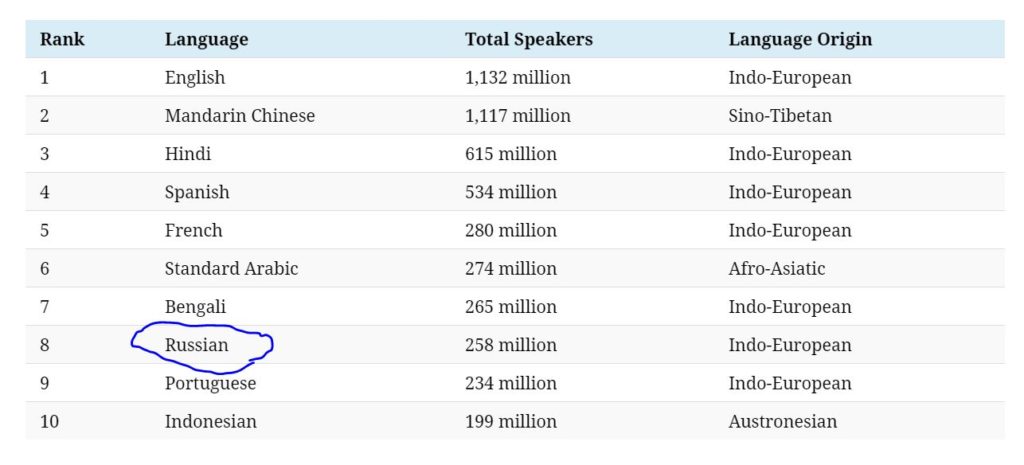
2. It is also one of the official languages of the United Nations (UN), including Arabic and Chinese (which are more difficult to learn).
3. Moreover, one must know Russian if one wants to venture into space. Russian language is the Language of Space. Astronauts must know Russian as they use a Russian docking craft to get to the International Space Station (ISS).
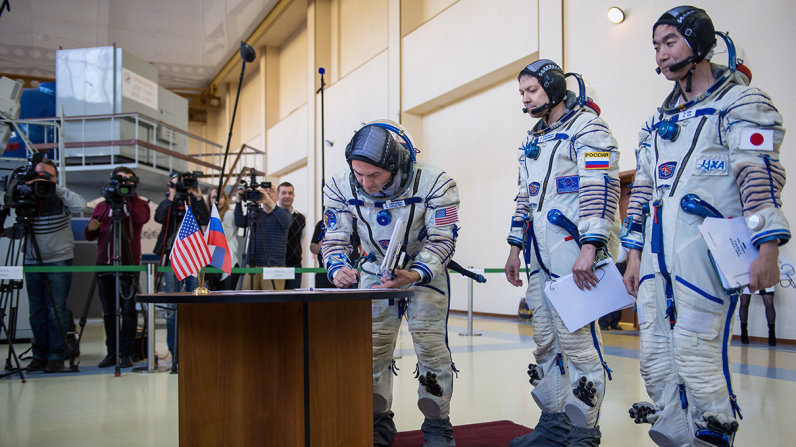
Russian: A Widely Spoken And Understood Language
Russian Literature
The Cyrillic Script
Russian Can Help You In Business
We all are aware of the fact that Russia is one of the leading countries in the world. It is extremely rich in oil reserves. As well as platinum, iron ore, titanium, lead, gold, and diamonds. By learning this language, you can start doing business with the Russians. Even the companies that are currently dealing with them would like to have people who are fluent in the native tongue. So, it opens personal business ventures and a new market for job opportunities. Even federal US agencies are always looking to hire people that can speak Russian. Learn Russian to stand out and thrive.
How to Learn Russian Fast | Where To Find Russian Tutor
Seven tips to learn Russian fast and where to find the best Russian tutor.
How to Learn Russian Online | Where to Find Russian Language Tutors
Learning Russian language is a challenging task. But with the right tutelage and practice, it can become easier. Lonet.Academy provides the best tutors who can make this task easier for you.
Here are some Russian language native tutors for you to consider if you are serious about learning Russian fast and effectively:
Tatiana Korovina – Russian language tutor at Lonet.Academy (watch Tatiana’s introduction video here). You can book a trial lesson with Tatiana for just 3 EUR and have a real authentic practice of the Russian language online.
Alexander Samoylov – Russian language tutor online. Alexander is an experienced Russian language teacher.
Anastasia Pavpertova – is an experienced Russian language teacher.
Irina Miroshnikova – has more than 10 years’ experience in teaching foreign languages.
Elena Lopez – native Russian tutor from Moscow. Elena gives Russian language classes online at Lonet.Academy and she welcomes to her Russian lessons (watch Elena’s introduction video here)
And other Russian tutors online are available at Lonet.Academy.
The Best YouTube Channels To Learn Russian Online
2. Learn Russian while you sleep! Learning Russian while sleeping is simply a matter of Mind over Mattress. Don’t sleepwalk through life! Learn a new language in your sleep with Lingo-Jump channel!
3. Real Russian Club – Russian vocabulary builder. How to learn new Russian words and phrases. Russian for travellers and tourists.
If you are interested in learning languages, read our blog and subscribe to our YouTube channel.
